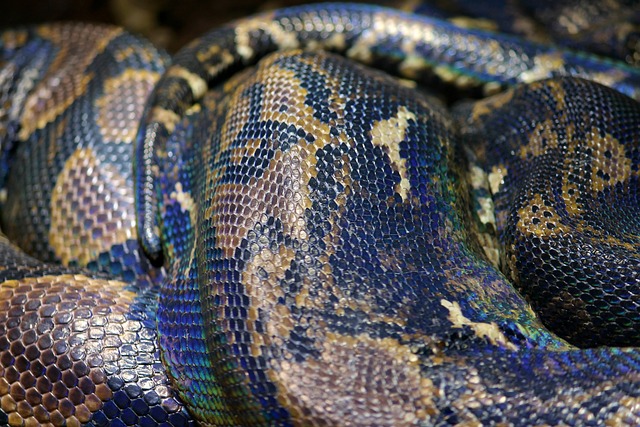Believe it or not, the invasive Burmese pythons in the Everglades can be eaten. These massive snakes have been wreaking havoc on the Florida ecosystem for years, and scientists say the best way to control their population is through good old-fashioned hunting. Here’s everything you need to know about these delicious—and dangerous—reptiles.
Can the invasive pythons from Florida be eaten?
Pythons are a non-native species in Florida that have caused great harm to the local ecosystem.
They are voracious predators and have been known to eat alligators, deer, and even humans. In recent years, there has been an effort to control the python population by paying people to hunt them.
And while this has had some success, the pythons are still a significant problem in Florida. One possible solution is to turn them into food.
Python meat is quite nutritious and a delicacy in many parts of the world. In addition, it is high in protein and low in fat.
So if you’re ever in Florida and see a python, don’t be afraid to try it. You might just be surprised at how good it tastes.
The invasive pythons
Burmese Pythons are initially from Southeast Asia, but they’ve been in Florida for decades.
It’s believed that they were first introduced to the Sunshine State in the 1980s when pet owners released them into the wild after they became too large to care for.
Since then, their numbers have exploded. It’s estimated that tens of thousands of pythons are slithering around the Everglades.
These snakes pose a serious threat to Florida’s native wildlife.
They eat all sorts of animals, including rodents, birds, and alligators. They’re one of the few predators that can take down an adult alligator.
As a result of their voracious appetite, pythons have decimated local populations of small mammals.
And since these snakes aren’t native to Florida, nothing stops them from eating as much as they want.
How to catch an invasive python
So, how do you catch one of these slippery creatures? Well, it’s not easy.
Pythons are excellent swimmers and superb climbers, so they’re not easy to find—let alone capture.
The best time to hunt them is at night during the cooler months (October through March), when they’re most active. And even then, you’re not guaranteed to see one.
If you’re lucky enough to spot a python, your next challenge is to catch it.
The best way to do this is with a long pole that has a noose on its end.
Once you’ve caught the snake, you’ll need to transport it to a nearby collection point carefully. The good news is that there are plenty of places willing to take your catch; the bad news is that you won’t be paid for your trouble.
You might even have to pay a small fee if you want someone else to dispose of the snake.
Helping to control the population
So why bother catching a python if there’s no financial reward?
For starters, it’s a great way to help control their population. And secondly, did we mention that these snakes are edible?
That’s right; Burmese pythons are considered a delicacy in their native homeland of Southeast Asia. If you’re thinking about giving python meat a try, the best way to prepare it is by slow-cooking it or grilling it over charcoal.
Just remove the skin before eating—it’s not exactly appetizing!
How did these pythons arrive in Florida?
It is believed that the pythons that now inhabit the Everglades arrived in Florida via the pet trade. In the early 2000s, there was a surge in the popularity of these snakes as pets, and many were imported from their native countries to meet the demand.
However, many of these snakes were abandoned when people realized how much work they required. It is thought that some of these abandoned snakes made their way into the Everglades, where they have thrived in the warm climate and abundant food supply.
These invasive snakes pose a severe threat to native wildlife, and efforts are underway to control their population.
It is important to remember that if you are no longer able or willing to care for your pet, there are options for safely rehoming them rather than releasing them into the wild.
Should these pythons be hunted and eaten?
It’s no secret that the Everglades is home to a large population of Burmese pythons. These snakes, which can reach up to 20 feet, have been known to prey on native animals, including alligators and deer.
As a result, some people believe that these pythons should be hunted and eaten to control their population. However, there are a few things to consider before making this decision.
- First of all, hunting pythons is not an easy task. These snakes are notoriously difficult to track down, and even experienced hunters often come up empty-handed.
- Secondly, the meat of these pythons is not particularly palatable. Many people who have tried it report that it tastes like chicken – albeit chicken that has been sitting in the sun for a week.
- Finally, it’s worth considering the potential ecological consequences of hunting these snakes. The Everglades is already a fragile ecosystem, and removing a top predator could throw the whole system out of balance. For these reasons, hunting and eating pythons is not a decision to be made lightly.
Conclusion
Yes, Floridian pythons are edible—and some people might even say they’re delicious! So if you’re adventurous and want to help control their population, why not go out and catch one yourself? Just be sure to use caution; these snakes can be Dangerous!




